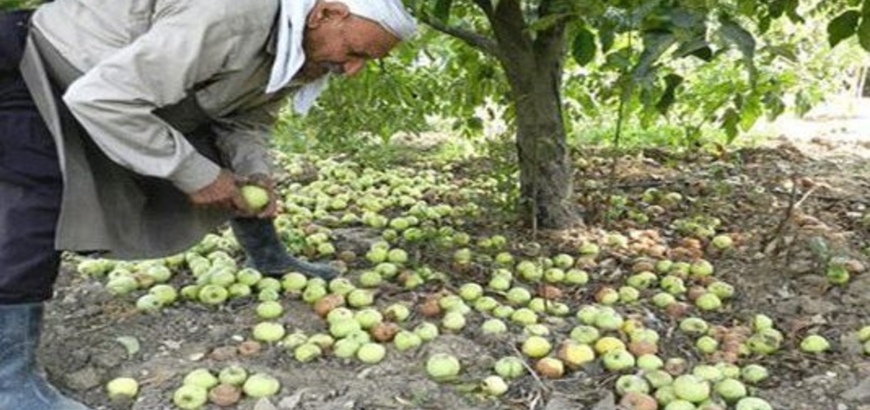The Minister of Agriculture and Agrarian Reform in the regime government, Ahmed Asa'ad al-Qadri, has revealed preliminary statistics of the damage to farmers in the country, saying that its value is close to 1.2 trillion Syrian pounds, while also stating that there are difficulties in compensating for damage at the current time.
Qadri said that the harmed farmers can document the damage with police and then record it in at the agricultural department for the future, according to the pro-regime newspaper Al-Watan.
Last winter, the country saw a reduction in the amount of rain over the months of February and March, and then there were very heavy rains accompanied by cold, sometimes in April and May—that is, outside the normal times. Tobacco, grapes, olives and apples were the most heavily damaged crops.
The Assad government was content to merely form committees a few months ago to assess the damage inflicted on the crops due to the recent weather conditions, including vegetables, fruits and tobacco.
Last month the cabinet agreed to compensate about 39,000 farmers in a number of provinces whose seasons were affected, at a total of 2.7 billion pounds, from a "fund to reduce the effects of drought and natural disasters on agricultural production."
The deputy in the cabinet, Maher Mowwad, said at the start of November that there was a proposal to schedule loans to farmers with the interest and obligations dropped for 10 years, and it is expected to be sent to the cabinet to be issued as a law.
Farmers have obtained loans worth just 1.8 billion pounds over the first nine months of the current year, out of the total loans of the Agricultural Cooperative Bank which reached about 70.8 billion Syrian pounds.
The investment budget of the Ministry of Agriculture and Agrarian Reform for the coming year reached 30 billion pounds, compared with 17.8 billion in its budget this year, and its implementation has reached 41 percent.
This article was translated and edited by The Syrian Observer. Responsibility for the information and views set out in this article lies entirely with the author.


